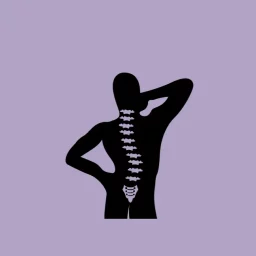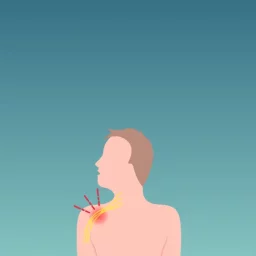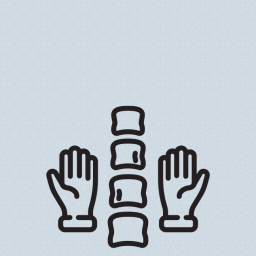This winter is proving to be a very cold one already! Colder weather can mean spending more time indoors and being around others. Sniffles along with less regular physical activity can translate into increased illness in your family.
Health hacks for a healthy system
The immune system is the body’s defence against infectious organisms and other invaders. Our bodies build an immune response, and our immune system attacks organisms and substances that invade the body to cause disease. The immune system is made up of a network of cells, tissues, and organs that work together to protect the body. Your immune system creates, stores, and distributes the white blood cells that fight bacteria and viruses that enter your body, especially during cold and flu season. In most cases, the immune system does a great job of keeping us healthy and preventing infections. But sometimes bacteria or viruses can overwhelm the immune system. In cases like these, this leads to illness and infection.
We all know what it feels like to have a cold coming on: pain in your sinuses, a tickle in your throat, sneezing and heaviness all over your body. Your immune system is under attack. No one likes getting sick, which is why you need to keep your immune system as strong as possible.
Here are some healthy lifestyle habits to help you cut down on sick days, keep you functioning at your best and leave your immune system strong. Believe it or not, things like what you eat, your attitude, and the amount of exercise you get can all play a role in strengthening your system and preventing illness.
Give your system a workout
Working out does more than keep your body in shape. Exercising regularly is a significant factor impacting your overall health. It’s been proven that people who lead more sedentary lifestyles are more likely to get infected when exposed to colds or other infectious diseases. Moderate exercise can help to prevent colds but a quick jog anytime you feel a scratchy throat won’t do the trick. You need to be consistent with physical activity efforts as immunity improves gradually over time. Staying active keeps you healthy, but conversely, overdoing it with heavy-duty exercise can actually weaken the immune system leaving you more vulnerable to colds and flu.
Eat a nutrient-packed, well-rounded diet
If you’re feeling under the weather, food might be the last thing on your mind. However, even if you’ve lost your appetite, it’s important to keep consuming a nutrient-dense, well-rounded diet. Meeting your body’s nutritional dietary needs during cold winter months keeps the immune system strong and can help with recovery time if you do fall under the weather. Regardless of whether you may have a sniffle or trying to ward off any winter illness, you should make sure you’re consuming enough nutrients to give your body the energy it needs to fuel its immune defences. Stick to a diet rich in fruits, veggies, healthy fats, whole grains, and lean proteins to help defend your body against germs. Avoid processed foods and those high in sugar, while increasing fluid intake.
Probiotics
Your gastrointestinal tract is a breeding ground for bacteria, both good and bad. Good bacteria help your immune system in the battle against microorganisms that might cause disease. These bacteria also support healthy digestion of the vitamins and minerals you need for general health. Probiotics are the good bacteria you need, and eating foods or supplementing with probiotics may help to support your immune system’s efforts. Consider taking a daily probiotic supplement or include probiotic-rich foods like yogurt, miso, some cheeses, kimchi, sauerkraut, and kombucha in your diet.
Vitamin D
We live in a country with little opportunity to synthesize Vitamin D in the winter. These shorter winter days mean decreased sunlight, and as such, it is recommended to supplement with daily Vitamin D. Vitamin D supplementation is important at all ages and Health Canada’s Dietary Recommended Intake is a good tool to gauge how much Vitamin D we all need. Sufficient levels of Vitamin D reduce your risk of infectious disease by strengthening your immune system. Vitamin D aids in triggering a strong anti-microbial response, allowing you to quickly fight off invaders before they can develop into a full-blown infection. Talk to your healthcare provider about appropriate supplementation for your needs.
Oil of Oregano
Oregano grows wild in several Mediterranean countries and is typically dried and used to flavour food. But most people don’t know that oil oregano is considered to be a natural antibacterial, antiparasitic, antiseptic, antiviral and immune-boosting agent. In fact, oil of oregano contains a compound called carvacrol. Carvacrol has been shown to help break through the outer cell membranes that help protect bacteria from the immune system. Studies have shown that oil of oregano is effective at killing bacteria, and could also help the immune system take action against viruses, fungi and parasites. Due to potency, it is important to check with a qualified specialist or practitioner before using this or any other herb, especially during pregnancy or breastfeeding.
Get enough sleep
Your immune system needs quiet time to do its work, which is why immunity and sleep are intricately linked. Some experts even believe that sleep evolved mainly as a way for the body to defend against illness and infection. When you don’t get enough sleep, your immune system becomes more vulnerable to illnesses. When you’re feeling overwhelmed by your endless to-do list, it can be tempting to skip sleep to get everything done. However, keep in mind that sleep deprivation suppresses immune system function and the consequences could mean more sick days.
Stay hydrated
Drinking a lot of water is good for your body, and it’s also good for your immune system. Water helps all of your systems function at optimum levels. Staying adequately hydrated can help your body eliminate toxins and waste materials, enabling your immune system to better fight infection. Dehydration can affect your energy levels, as well as your ability to sleep, which can make you less likely to exercise, another trigger for a weakened immune system.
Healthy hygiene habits
Your body has many defence mechanisms to ward off bacteria and viruses. The hairs lining the inside of your nose act as a first line of defence against potential invaders you might inhale. You can help your nose do its job by using a saline nasal rinse to flush out trapped bacteria.
Humidify the air
The winter months are very dry. Air humidifiers can be used at home to put moisture back into the air, which has many health benefits. Even if you don’t have a cold, winter air can dry out your sinuses, lowering your resistance to bacteria and viruses. Sleep with a humidifier in your room and wake feeling more comfortable in your nose and throat. Studies show that increasing humidity levels inside your home to 40-45% can significantly reduce the ability of airborne viruses to cause flu infections. Viruses and bacteria don’t travel well in moist air.
Prevent the spread
Let’s be mindful of other people’s immune systems as well. A sneeze can travel through the air at speeds of up to 100 km/hour. A cough may be a bit slower, but either way, be sure to cover your mouth. Your skin is one of your body’s biggest immune defences of all, acting as a physical barrier against germs. Germs can make you sick when they get on your skin they can end up in your eyes, nose, and mouth. That’s where good hand-washing hygiene comes in. Also refrain from excessively touching your eyes, nose, and mouth. If you are experiencing cold and flu symptoms you may also want to wear a mask when in close contact with others to prevent the spread of germs and viruses.
As the cold weather sets in across the country this winter, we will more likely stay indoors to avoid the frigid temperatures. Build your best defence against illness this year by incorporating our suggested health hacks for a healthy immune system. Keep your time away from work reserved for fun-filled, and well-deserved vacations! If you need help getting your health back on track contact us at our Glebe clinic at 613-237-9000 or our Byward clinic at 613-860-8600. You can also visit us online to book your appointment.















